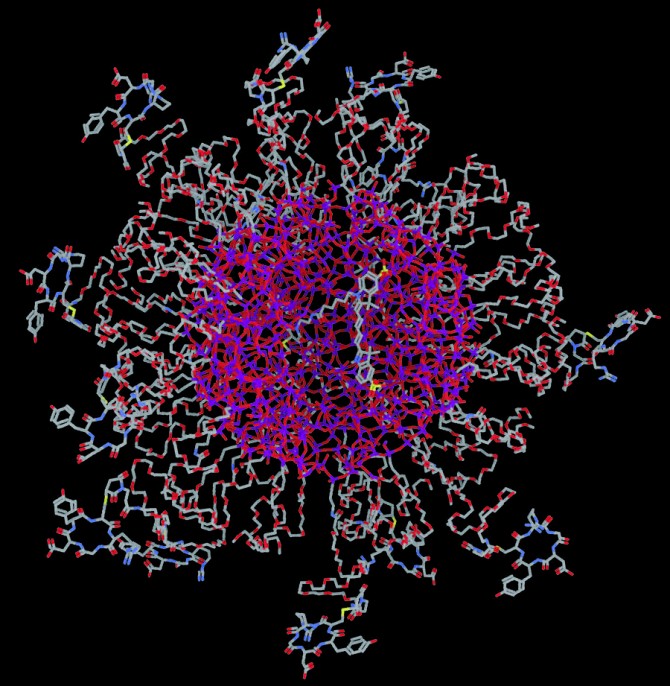Cornell startup raises $44M to advance ‘C Dots’ biotech
By Chris Dawson
Elucida Oncology, a biotechnology company based on C Dots – ultra-small nanoparticles developed at Cornell that show promise in identifying and fighting cancer – recently secured $44 million in financing, in addition to $28 million raised in 2018.
C Dots, originally called Cornell dots, were created more than 15 years ago in the lab of Uli Wiesner, the Spencer T. Olin Professor of Engineering in the Department of Materials Science and Engineering. Wiesner has been working to put C Dots to use in the fight against cancer ever since.
As a result of their size, C Dots proved safe and effective for use in human beings as both an imaging and a diagnostic tool in early clinical studies. The new funding will help the company gain regulatory approval as a targeted cancer therapeutic, and to expand its management team and its laboratory capabilities.
“This vote of support from investors means a lot to me,” Wiesner said. “Given C Dots’ broad applicability, I have been pushing efforts in health care-focused startups since 2005 to commercialize this technology. At the beginning it was a reagent company. Then we started a company focusing on diagnostics, and now we have a company emphasizing therapeutics.”
This evolution shows the flexibility and the value of the C Dot platform, he said.
Elucida was founded in 2014 and co-founders include Wiesner, Kai Ma, Ph.D. ’15, and Dr. Michelle Bradbury, director of intraoperative imaging at Memorial Sloan Kettering Cancer Center and professor of radiology at Weill Cornell Medicine.
In the C Dots, each silica-based nanoparticle has an embedded fluorescent molecule in the interior for optical detection, as well as several organic ligands and functional groups on the surface. This makes the C Dot platform more flexible: Specific ligands prevent attack from the body’s defenses, while targeting groups cause the C Dot to specifically bind with tumor cells when they come into contact.
In this configuration, C Dots are currently being tested as a diagnostic tool in ongoing clinical trials at Memorial Sloan Kettering and Weill Cornell Medicine. When they are injected into a person with cancer, the glowing C Dots attach to cancer cells and can be seen by the surgeon with the use of a fluorescent camera.
In order to gain regulatory approval as a targeted cancer therapeutic, the company will need to complete ongoing toxicology studies and file an Investigational New Drug application with the Food and Drug Administration, according to Geno Germano, CEO and president of Elucida. The latest round of funding will support these moves.
“We have an excellent technology, an incredible team at Elucida, and a world-class board to help us navigate the highly complex landscape around cancer therapeutics,” Wiesner said.
Elucida is planning to start clinical trials this summer; by the spring of 2022, the company expects to have the first data from those trials.
“If this trial validates our therapeutic approach the way we think and hope it will,” Wiesner said, “our C Dot nanoparticle platform will give us a whole battery of disease-fighting products.”
Chris Dawson is a writer for the College of Engineering.
Media Contact
Get Cornell news delivered right to your inbox.
Subscribe

